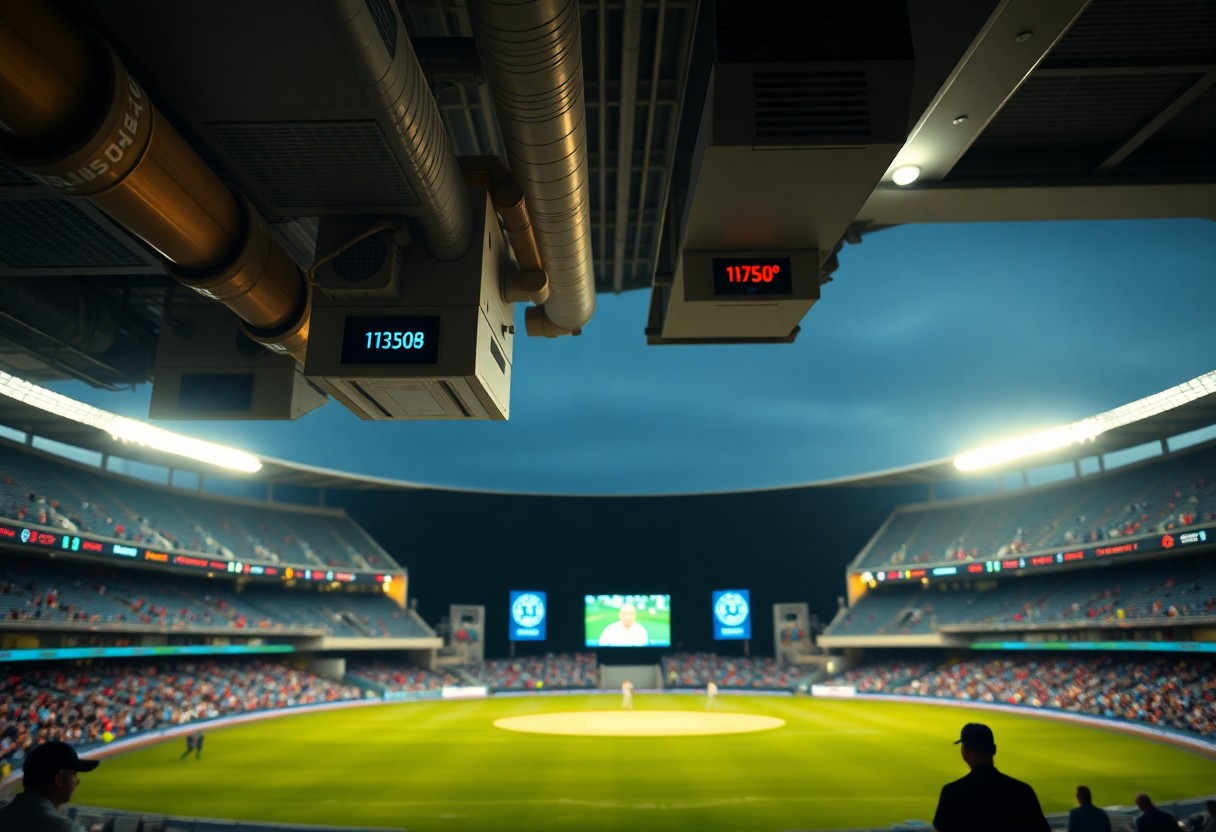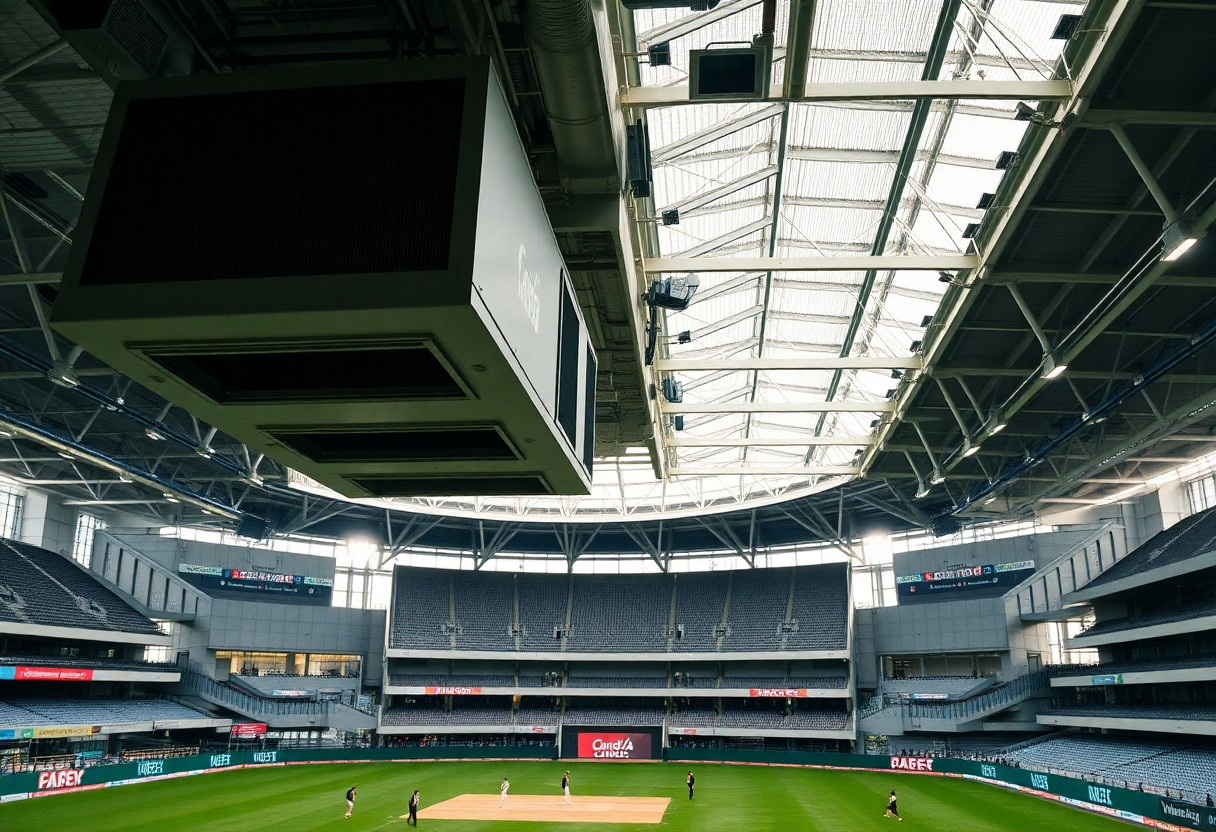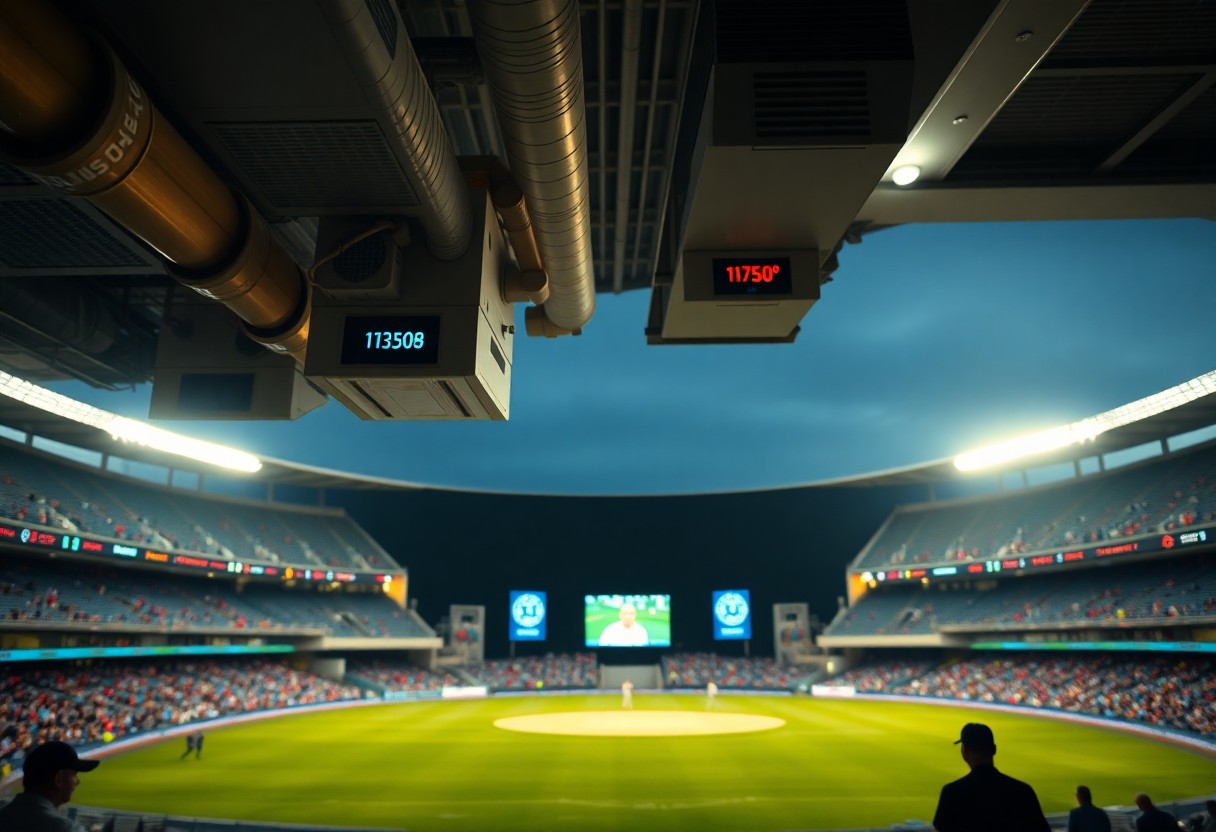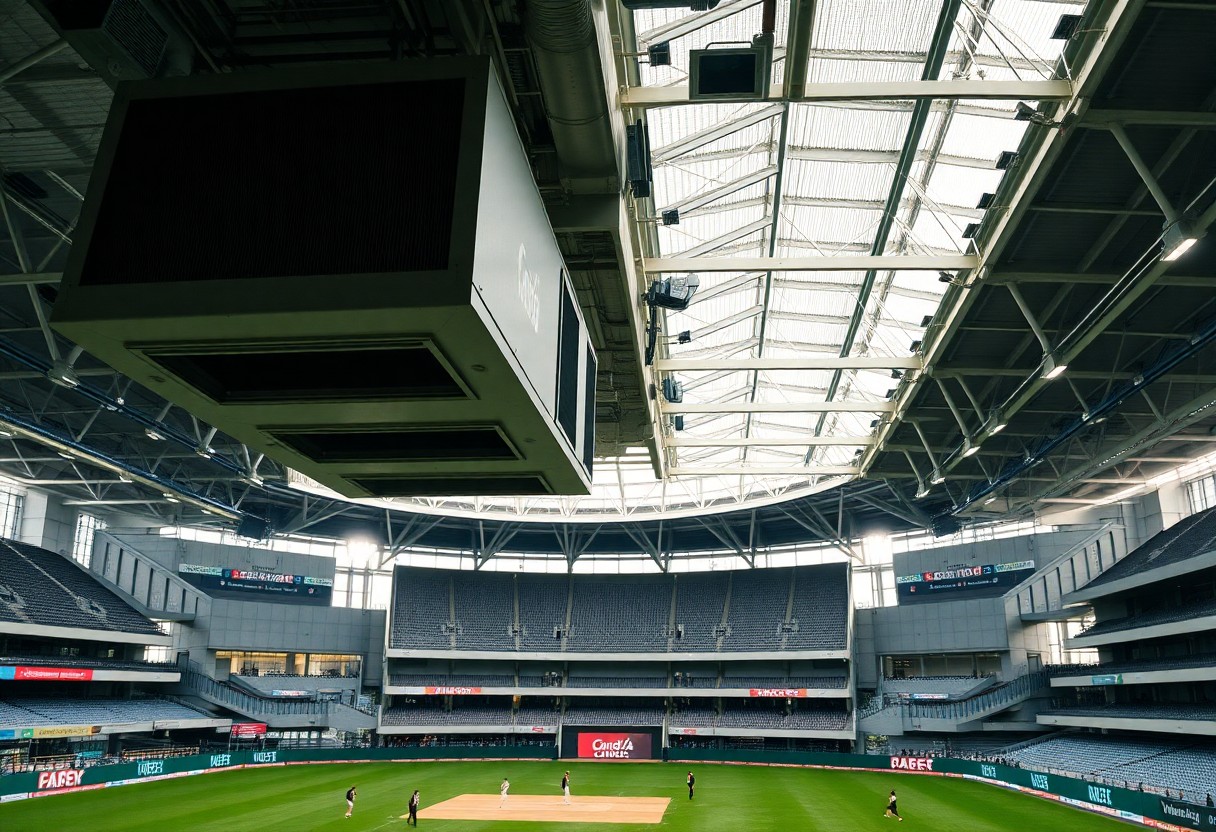Performance at The Gabba can be significantly influenced by the air conditioning system, which plays a vital role in regulating temperature and humidity levels during matches. As you observe players navigating the challenges of game day, understanding how the AC system impacts their comfort and stamina can enhance your appreciation of their efforts. This post explores the various ways in which a well-maintained AC setup helps optimize player performance, aiding in endurance and reducing the risk of heat-related issues.
Key Takeaways:
- The Gabba's AC system helps maintain optimal temperature and humidity levels for players.
- Effective climate control can reduce player fatigue and improve performance during matches.
- The system provides a consistent environment that aids in maintaining focus and concentration.
- Air circulation from the AC system can affect ball movement and pitch conditions.
- Monitoring of temperature and humidity can assist coaching staff in making strategic decisions.

The Role of Temperature in Performance
Temperature significantly influences athletic performance, particularly in high-stakes environments like The Gabba. An ideal climate allows players to maintain focus and execute strategies effectively, while extreme heat can lead to decreased physical capabilities and longer recovery times.
Temperature Effects on Athletic Performance
| Temperature Range (°C) | Impact on Performance |
| 15-20 | Optimal for endurance and speed |
| 21-26 | Moderate performance, manageable for most |
| Above 26 | Increased fatigue, risk of heat stress |
Optimal Temperature Range for Athletes
Your performance peaks within a temperature range of 15-20°C. At this level, body temperature regulation is efficient, allowing for improved endurance and speed. Most athletes thrive when humidity levels are also controlled, enabling them to perform at their best without overheating.
Optimal Temperature for Endurance
| Temperature (°C) | Performance Level |
| 15 | Peak performance |
| 20 | Optimal range maintained |
| Above 26 | Performance drop |
Impact of Heat and Humidity on Endurance
Heat and humidity can profoundly affect endurance. As temperatures rise, the body struggles to maintain a stable core temperature, which decreases aerobic performance. Additionally, high humidity reduces the effectiveness of sweat evaporation, leading to quicker onset of fatigue.
Even slight increases in heat can elevate heart rates, elevating perceived exertion levels. For instance, studies show that in temperatures above 30°C with high humidity, athletes can experience a reduction in performance by up to 20%. This deterioration stems from increased metabolic demands and reduced cardiovascular efficiency, emphasizing the need for temperature regulation systems like that at The Gabba.
Air Quality and Its Effects
Air quality plays a vital role in optimizing player performance at The Gabba. Poor air quality, laden with pollutants or high levels of humidity, can hinder athletic output, causing fatigue and reduced endurance. Ensuring a clean, well-ventilated environment helps maintain cognitive function and physical capability, ultimately impacting game outcomes and player well-being.
Importance of Ventilation
Ventilation directly influences the air quality inside the stadium. An efficient ventilation system ensures a constant flow of fresh air, diluting contaminants and preventing the buildup of carbon dioxide. This not only enhances player comfort but also supports mental clarity during critical moments in a match.
Pollutants and Respiratory Health
Respiratory health is significantly affected by air quality due to exposure to various pollutants such as particulate matter, volatile organic compounds, and allergens. Prolonged exposure can lead to asthma flare-ups and other respiratory conditions, compromising athletes' performance and overall health.
Prolonged exposure to airborne pollutants in stadium environments can have serious implications for players, including increased incidences of asthma and reduced lung function. Case studies indicate that athletes subjected to polluted air often report decreased exercise capacity and heightened fatigue. Implementing effective air purification systems at The Gabba can mitigate these risks, improving overall respiratory health and allowing players to perform at their peak during critical moments on the field.

AC Systems: Mechanism and Design
The Gabba's sophisticated air conditioning systems utilize advanced technology to precisely control temperature and humidity, ensuring a comfortable environment for players and spectators alike. This operational efficiency translates to improved player performance as athletes can focus on the game without being distracted by heat stress. You can explore more about how 'The Gabba' is set to glow in all its grandeur here.
Types of AC Systems Used at The Gabba
The Gabba employs a combination of variable refrigerant flow (VRF) systems along with chilled water units to optimize cooling efficiency. These systems ensure that air distribution is uniform throughout the venue, adapting to varying occupancy levels and external conditions.
- Variable refrigerant flow (VRF) systems
- Chilled water units
- Dedicated outdoor air systems (DOAS)
- Energy recovery ventilators (ERVs)
- Split and multi-split systems
Assume that the strategic combination of these systems maximizes cooling efficiency and ensures player comfort during crucial matches.
| System Type | Description |
| Variable Refrigerant Flow | Offers precise control for different areas |
| Chilled Water Units | Efficient cooling for larger spaces |
| Dedicated Outdoor Air Systems | Improves indoor air quality |
| Energy Recovery Ventilators | Recovers energy for efficient operation |
Efficiency and Maintenance of AC Systems
Consistent maintenance of the AC systems is vital for maximizing their efficiency at The Gabba. Regular servicing, including filter changes and system checks, helps in sustaining optimal performance, ultimately enhancing player concentration and endurance during games. Advanced monitoring systems provide real-time data on system performance, allowing for proactive maintenance actions.
Achieving top efficiency requires not just regular inspections but also upgrades to equipment when necessary. Investing in high-efficiency systems can significantly reduce energy costs and improve cooling capacity. Incorporating automation and smart technology also ensures that only the necessary amount of energy is used, making the venue environmentally sustainable while optimizing player performance. This attention to detail reveals how even subtle enhancements in climate control can lead to significant benefits on the field.
Hydration and Cooling Strategies
Importance of Hydration During Play
You need to prioritize hydration throughout the game, as even mild dehydration can impair performance and decision-making. Studies show that a loss of just 2% body weight due to sweat can reduce endurance, increasing the risk of fatigue and muscle cramps. Consistently hydrating before, during, and after matches ensures your body maintains optimal temperature regulation and stamina, which is vital for peak performance on the field.
Cooling Methods Employed by Teams
Teams utilize various cooling methods to counteract heat stress during matches. Ice vests, cooling towels, and electrolyte-rich beverages are commonly employed to keep players' core temperatures in check. Additionally, the use of shade tents during breaks allows for rapid temperature recovery, enhancing overall player readiness for the game.
Innovative techniques such as portable cooling units have also gained traction. These devices circulate cool air around a player's environment, actively lowering skin temperature. As a practical example, during high-heat matches, hydration stations strategically placed on the sidelines provide immediate access to cold water and electrolyte solutions, helping players restore lost fluids efficiently. Some teams even integrate biomechanical wearables that monitor players' hydration levels in real-time, allowing for tailored hydration strategies, further optimizing player performance under challenging conditions.
Psychological Effects of Climate Control
Mental Focus and Comfort
A controlled climate at The Gabba enhances your mental focus, allowing you to concentrate fully on the game. Comfortable temperatures reduce distractions, enabling optimal performance levels. By eliminating concerns about oppressive heat or sudden chills, you can channel your energy toward strategy and execution rather than discomfort.
Stress Reduction through Controlled Environments
Having a stable environment significantly lowers your stress levels during matches. The Gabba's AC system creates a buffer against external weather fluctuations, allowing you to play without the psychological burden of heat or humidity. This stability fosters a more relaxed demeanor, promoting better decision-making under pressure.
Research indicates that players in climate-controlled environments experience enhanced emotional regulation and focus, which translates into improved performance metrics. For instance, studies have shown that athletes perform better in consistent conditions, as the unpredictability of weather can lead to anxiety and distraction. By providing a stable atmosphere, The Gabba ensures that your mental state remains centered, fostering confidence and resilience as you face opponents on the field.
Final Words
Considering all points, the AC system at The Gabba significantly impacts your performance during matches. A well-regulated temperature helps maintain your focus and endurance, while humidity control prevents overheating. Understanding how these environmental factors influence your physical and mental state allows you to prepare more effectively, ensuring that you can perform at your best under varying conditions. Adapting your strategies in alignment with the AC's effects on the playing field can enhance your overall experience and results.
FAQ
Q: How does the AC system at the Gabba impact player endurance during matches?
A: The AC system maintains a cooler environment, which helps reduce player fatigue and enhances endurance levels by preventing overheating. This allows players to maintain peak performance throughout the game.
Q: What role does humidity control play in player performance at the Gabba?
A: The AC system reduces humidity, which minimizes sweat loss and helps players maintain hydration levels. This is vital for sustaining energy and focus during long matches.
Q: How does the temperature of the AC system affect ball trajectory and bounce at the Gabba?
A: Cooler temperatures can lead to a denser air environment, which may slightly affect the ball's trajectory and bounce. Players need to adapt their techniques to account for these minor changes in conditions.
Q: Are there any specific benefits for players with respiratory conditions due to the Gabba's AC system?
A: Yes, the controlled air quality and reduced pollutants from the AC system can benefit players with respiratory issues by providing cleaner air, thus allowing them to perform better without breathing difficulties.
Q: How does the AC system influence the psychological state of players during games at the Gabba?
A: A consistently cool environment helps in maintaining players' comfort levels, reducing distractions and allowing them to focus better on their performance, enhancing overall psychological readiness.

